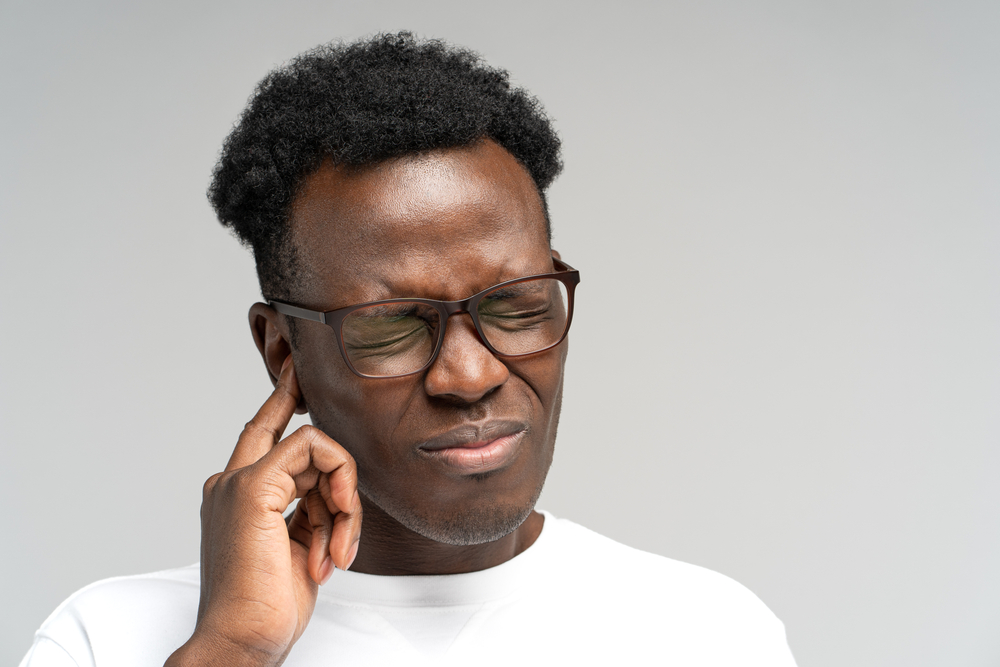After years of attributing instances of tinnitus to environmental factors, recent research is prompting us to reconsider: could tinnitus be hereditary after all? Is it something you inherit from your parents, akin to a receding and challenging-to-conceal hairline?
Conventionally, the prevailing belief associated tinnitus with environmental influences—such as attending too many loud rock concerts (or whatever the current musical trend may be) or neglecting hearing protection in noisy work environments.
However, a study led by Dr. Christopher R. Cederroth, an associate professor of physiology and pharmacology at Karolinska Institutet in Sweden, suggests a different perspective—that tinnitus may, to some extent, have a hereditary component.
How does finding a genetic link help hearing professionals?
Dr. Cederroth’s findings are quite important. Treatments for tinnitus are often effective, but they could be better, especially in more severe cases. Finding new, effective treatments is easier when you know the root cause you’re trying to address.
If this research pans out and there is a genetic link to tinnitus, doctors and hearing professionals will be able to do two things:
- Develop preventative therapies. If researchers can effectively identify the genes that cause tinnitus, medical professionals will be able to determine who’s predisposed. And if you’re predisposed to tinnitus, you’ll be able to take preventative steps to keep it at bay through lifestyle changes like wearing earplugs to concerts.
- Develop genetic therapies. In theory, if tinnitus is caused by certain genetic factors, someday doctors could develop therapies that treat the affected genes and take out tinnitus altogether. This is, of course, a long way ahead, and it depends on whether this research holds up to repeated inspections. A cure or treatment for tinnitus is the goal of all tinnitus research in some form or another.
Still don’t skip out on hearing protection
Of course, if your biological parents don’t exhibit any symptoms of tinnitus, you might think you’ve won the ear-health lottery and that you can turn up the volume on your headphones. Take a minute to think about that first.
First and foremost, tinnitus is not the only environmentally-driven hearing ailment that you need to think about. You will always want to avoid degenerative damage to your ears regardless of whether it’s tinnitus or not—including listening to your music at a reasonable volume.
Second, this most recent research does not suggest that tinnitus cannot develop outside of a genetic trait passed on from your biological parents. It’s all statistics; you might be less likely to develop tinnitus, but it can still happen, so there’s not much harm in wearing earplugs from time to time–especially when loud noises are about.
Environmental causes of tinnitus
Even if this research is backed up with other studies, your biological parents aren’t going to bear all of the blame for your tinnitus. There are some environmental factors that are known contributors to tinnitus:
- Exposure to an abrupt, extremely loud noise.
- Extended exposure to low-level yet high-intensity sounds.
- Other illnesses or conditions that may not initially appear linked to your hearing or ears.
- Infections or blockages in the ear.
Any of these issues can present as the ringing in the ears that is characteristic of tinnitus.
The degree to which genetics contributes to the process is unknown. Some people will go to a loud event and be just fine the next day; others will experience temporary tinnitus as a result. For still others, that temporary tinnitus will morph into a permanent issue requiring treatment.
The beginning of more research
This research into the heredity of tinnitus challenges decades of thinking on the subject. So there’s likely to be more research on the subject soon, and hearing specialists will incorporate new thinking into their treatment options.
If you are suffering from tinnitus or ringing of the ears, don’t wait for further research to contact a specialist for help.
